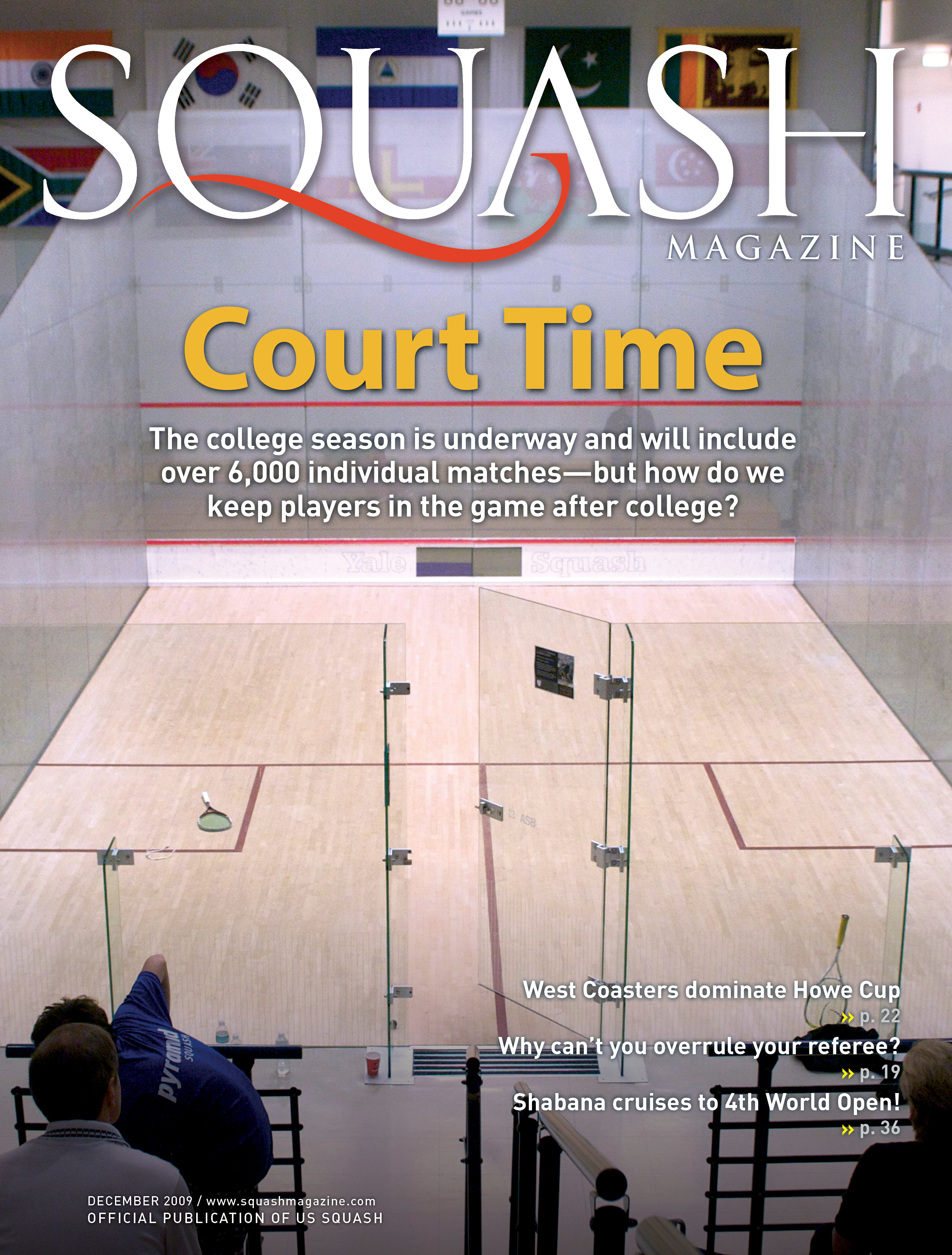By Jay D. Prince
As you will no doubt notice quickly, most of the Letters to the Editor we have received over the past few weeks have been addressing the issue of PAR-11 scoring. Most of them have been vehemently opposed and clearly prefer traditional scoring to nine. That being said, I still enjoy playing games with PAR scoring, though I do agree with many of the arguments against it.
It’s ironic, but a week after finishing my last Publisher’s Note, I played a tournament in which we played PAR. I had never lost to the person I played in the first round, and I don’t recall the last time I lost in the first round of an event (other than Nationals). But PAR bit me hard.
My opponent was on fire with returning my serves into a cross-court nick. It didn’t matter what I did with the serve—high, low, short, fast, slow—he put about 80% of them away. Under traditional scoring, it wouldn’t have been that big of a deal. But with PAR, it was a killer. I don’t play aggressively when receiving serve, so perhaps I was my own worst enemy. But suffice to say. I lost in four games in a match that may have been much different had I only been losing the serve instead of points. Figures.
But I have a new axe to grind as a result of that experience. Needless to say, I was very disappointed to have been relegated to the consolation draw. I was seeded No. 4; I expected to win; and I got crushed. Kudos to my opponent who played very well.
So after drowning my sorrows in the club’s bar—with my opponent and a couple of other friends—I got up early to play my first consolation match. I showed up 30 minutes before my scheduled time, but my opponent was nowhere to be found. Five minutes before we were supposed to be on court, the club pro checked his email and found that my opponent had sent him a message saying, “I won’t be able to play so please give whoever I’m supposed to be playing a forfeit.” Apparently I was copied on that email, but I don’t typically check my work email over the weekend.
While a small part of me was happy about progressing further through the back side of the draw, I was extremely disappointed about not being able to play my match. The person who beat me in the first round had cautioned me to expect a forfeit, though I had no reason to think my morning opponent wouldn’t show.
Which brings me to my point. I’ve coached youth baseball, which you already know from reading other Notes from me, for the past 10 years. One of the cardinal rules in my dugout has been: “There’s no crying in baseball.” For what it’s worth, that goes for all sports. But my two kids will tell you I have a rule regarding sports and games (whether cards or board) that supersedes all others: “If you’re not willing to lose, don’t play!” Period.
I fully expect those who lose to be disappointed. And we all know that except for soccer, the sports we play do not end in ties—someone is going to win, and someone is going to lose. Losing is a bummer; I hate losing as much as anyone else. My wife will tell you that I do not take it well. As will my college teammates from Berkeley (though I’d like to think I’ve matured a bit since then).
What irked me about my recent experience was the fact that my consolation match was scheduled at the same time as the second round of the main draw. So had my consolation-round opponent won his match, he would have been scheduled to play at the same time. So to say he “won’t be able to play” didn’t make any sense to me. Instead I interpret it as, “I don’t want to play.” To his credit, he has insisted that he really didn’t have the time to play that weekend and probably shouldn’t have entered to begin with.
But he is not the first person to have forfeited a consolation match. It happens all the time in junior squash, which I think is ridiculous. Play the game. To forfeit is disrespectful to your consolation opponent, it’s disrespectful to yourself, and it’s disrespectful to the game.


